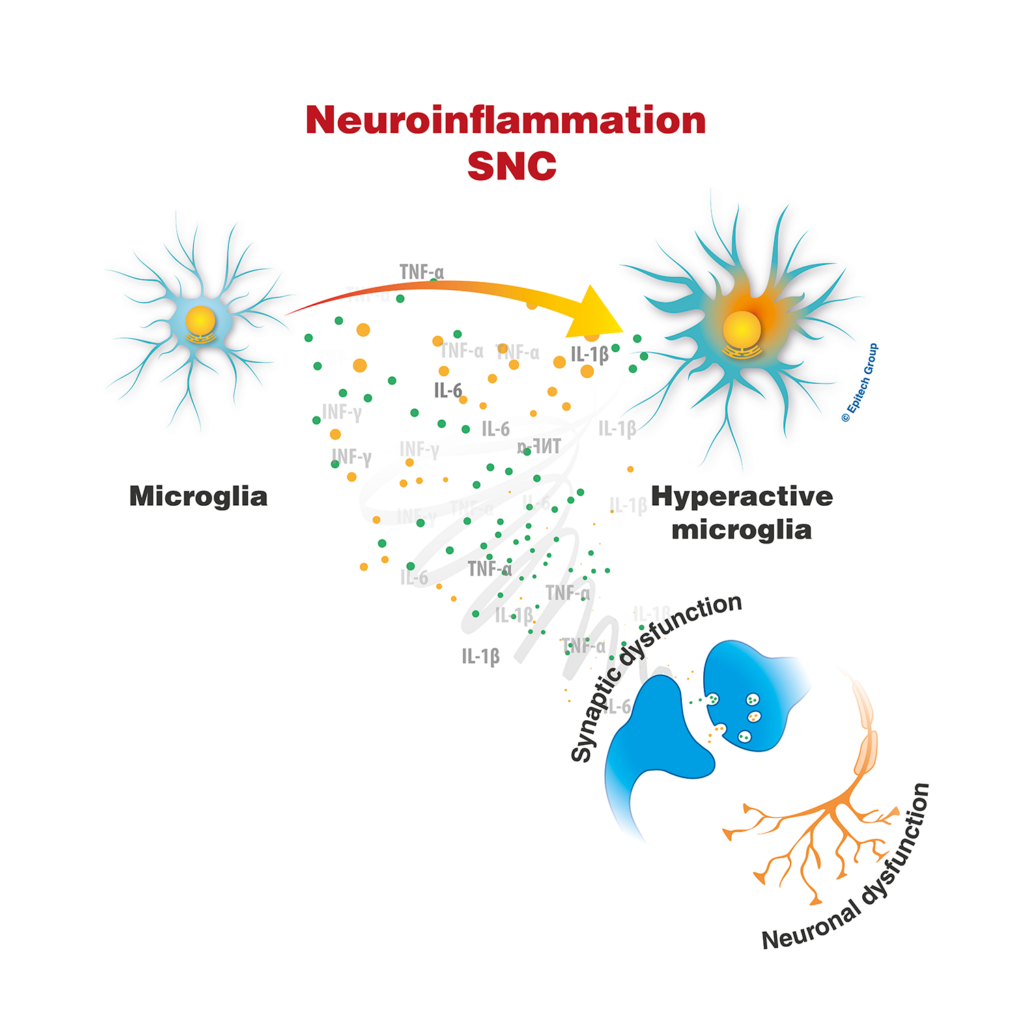Research to modulate central neuroinflammation that characterizes psychiatric disorders
Scientific evidence increasingly suggests that neuroinflammation can generate a predisposition to developing mental disorders. In particular, the dysfunction of non-neuronal cells, such as microglia and astrocytes, in the central nervous system constitutes a common feature of several psychiatric disorders. These include major depression, anxiety disorders and autism spectrum disorder (ASD). This condition is considered one of the main factors of neurotransmitter system imbalances.

Several studies converge to suggest that neuroinflammation, intended as an aberrant interaction between glial and neuronal cells, is involved in the etiology of several psychiatric disorders.
The aim of our research is to further the understanding of the role complex interactions play in mental disorders. We do this by studying how neuroinflammation affects mental health and exploring how potential targeted interventions can modulate these mechanisms to improve mental health conditions.


